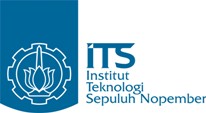Optimization of Hybrid Battery-Supercapacitor Storage System in Electric Ship Using Multi-Objective Genetic Algorithm
Abstract
As the marine industry now is running toward the green and more efficient propulsion system, the optimization has also become a primary part of the research. This research study is focusing on the optimal sizing of Hybrid Energy Storage (HESS) in electric ship using Multi-Objective Genetic Algorithm (MOGA). By integrating the battery and supercapacitor (SC), it helps cover the load demand while enhancing a good performance to the ship. This research study is to optimize sizing of HESS with a suitable Energy management System (EMS) to desired the intention of minimize the total cost of HESS and degradation of the battery. The proposed model addresses the complexity of HESS while optimized the distribution of power for both the battery and SC, handling the load condition.
Keywords
Full Text:
PDFReferences
M. Akbarzadeh, J. De Smet, and J. Stuyts, “Battery Hybrid Energy Storage Systems for Full-Electric Marine Applications,” Processes, vol. 10, no. 11, p. 2418, Nov. 2022, doi: 10.3390/pr10112418.
F. Balsamo, C. Capasso, D. Lauria, and O. Veneri, “Optimal design and energy management of hybrid storage systems for marine propulsion applications,” Appl. Energy, vol. 278, p. 115629, Nov. 2020, doi: 10.1016/j.apenergy.2020.115629.
X. Peng, H. Chen, and C. Guan, “Energy Management Optimization of Fuel Cell Hybrid Ship Based on Particle Swarm Optimization Algorithm,” Energies, vol. 16, no. 3, p. 1373, Jan. 2023, doi: 10.3390/en16031373.
A. Anvari-Moghaddam, T. Dragicevic, Lexuan Meng, Bo Sun, and J. M. Guerrero, “Optimal planning and operation management of a ship electrical power system with energy storage system,” in IECON 2016 - 42nd Annual Conference of the IEEE Industrial Electronics Society, Florence: IEEE, Oct. 2016, pp. 2095–2099. doi: 10.1109/IECON.2016.7793272.
Y. Li, X. Liu, Y. Zhao, T. He, and H. Zeng, “Optimization design of hybrid energy storage capacity configuration for electric ship,” Energy Rep., vol. 11, pp. 887–894, Jun. 2024, doi: 10.1016/j.egyr.2023.12.049.
J. Zhang and Y. Wang, “Research on Capacity Configuration and Cost Optimization of Hybrid Energy Storage System based on Ship Power Grid,” in 2020 39th Chinese Control Conference (CCC), Shenyang, China: IEEE, Jul. 2020, pp. 1484–1489. doi: 10.23919/CCC50068.2020.9188537.
S. Hans, S. Ghosh, S. Bhullar, A. Kataria, V. Karar, and D. Agrawal, “Hybrid Energy Storage to Control and Optimize Electric Propulsion Systems,” Comput. Mater. Contin., vol. 71, no. 3, pp. 6183–6200, 2022, doi: 10.32604/cmc.2022.020768.
M. Diabate, T. Vriend, H. S. Krishnamoorthy, and J. Shi, “Hydrogen and Battery – Based Energy Storage System (ESS) for Future DC Microgrids,” in 2022 IEEE International Conference on Power Electronics, Drives and Energy Systems (PEDES), Jaipur, India: IEEE, Dec. 2022, pp. 1–6. doi: 10.1109/PEDES56012.2022.10080550.
Y. Wang, S. J. Moura, S. G. Advani, and A. K. Prasad, “Power management system for a fuel cell/battery hybrid vehicle incorporating fuel cell and battery degradation,” Int. J. Hydrog. Energy, vol. 44, no. 16, pp. 8479–8492, Mar. 2019, doi: 10.1016/j.ijhydene.2019.02.003.
S. Changizian, P. Ahmadi, M. Raeesi, and N. Javani, “Performance optimization of hybrid hydrogen fuel cell-electric vehicles in real driving cycles,” Int. J. Hydrog. Energy, vol. 45, no. 60, pp. 35180–35197, Dec. 2020, doi: 10.1016/j.ijhydene.2020.01.015.
X. Wang, H. Zhu, X. Luo, S. Chang, and X. Guan, “An energy dispatch optimization for hybrid power ship system based on improved genetic algorithm,” Proc. Inst. Mech. Eng. Part J. Power Energy, vol. 238, no. 2, pp. 348–361, Mar. 2024, doi: 10.1177/09576509231205342.
R. Gayathri, M. F. Asma Ul Husna, R. Poojasri, S. Sutha, N. Pappa, and M. Vijayakarthick, “Hybrid Electro-Thermal model based optimal charging of Lithium-ion Battery using MOGA for Enhanced State-of-Health,” IFAC-Pap., vol. 57, pp. 173–178, 2024, doi: 10.1016/j.ifacol.2024.05.030.
S. Chakraborty et al., “Multiobjective GA Optimization for Energy Efficient Electric Vehicle Drivetrains,” in 2021 Sixteenth International Conference on Ecological Vehicles and Renewable Energies (EVER), Monte-Carlo, Monaco: IEEE, May 2021, pp. 1–7. doi: 10.1109/EVER52347.2021.9456619.
S. H. Mohammad Yusqi, L. Vita, and S. Agoes, “Optimization of the Standalone Hybrid Energy Storage System in The All-Electric Seabus Power System Based on Pulsed Propulsion Load Prediction,” Int. J. Mar. Eng. Innov. Res. IJMEIR, vol. 10, no. 2, Jun. 2025.
T. Maxwell, “Maxwell Supercapacitor 2.7V 600F Datasheet.” Maxwell Technologies / UCAP, Jan. 21, 2022. [Online]. Available: https://maxwell.com/wp-content/uploads/2022/07/3003329.2_2.7V-600F-Final-DS_20220121.pdf
T. Boonraksa, W. Pinthurat, P. Wongdet, P. Boonraksa, B. Marungsri, and B. Hredzak, “Optimal Capacity and Cost Analysis of Hybrid Energy Storage System in Standalone DC Microgrid,” IEEE Access, vol. 11, pp. 65496–65506, 2023, doi: 10.1109/ACCESS.2023.3289821.
X. Li et al., “An adaptive multi-objective joint optimization framework for marine hybrid energy storage system design considering energy management strategy,” J. Energy Storage, vol. 68, p. 107689, Sep. 2023, doi: 10.1016/j.est.2023.107689.
Ying Gao, Lei Shi, and Pingjing Yao, “Study on multi-objective genetic algorithm,” in Proceedings of the 3rd World Congress on Intelligent Control and Automation (Cat. No.00EX393), Hefei, China: IEEE, 2000, pp. 646–650. doi: 10.1109/WCICA.2000.860052.
N. A. Zolpakar, S. S. Lodhi, S. Pathak, and M. A. Sharma, “Application of Multi-objective Genetic Algorithm (MOGA) Optimization in Machining Processes,” in Optimization of Manufacturing Processes, K. Gupta and M. K. Gupta, Eds., in Springer Series in Advanced Manufacturing. , Cham: Springer International Publishing, 2020, pp. 185–199. doi: 10.1007/978-3-030-19638-7_8.
R. K. Chakrabortty and Md. A. A. Hasin, “Solving an aggregate production planning problem by using multi-objective genetic algorithm (MOGA) approach,” Int. J. Ind. Eng. Comput., vol. 4, no. 1, pp. 1–12, Jan. 2013, doi: 10.5267/j.ijiec.2012.09.003.
DOI: http://dx.doi.org/10.12962%2Fj25481479.v10i2.22950
Refbacks
- There are currently no refbacks.
 |  |  |  |
| |  |  |
|
|
|
|
|
P-ISSN: 2541-5972
E-ISSN: 2548-1479
IJMEIR journal published by Department of Marine Engineering, Faculty of Marine Technology, Institut Teknologi Sepuluh Nopember Surabaya Indonesia under licenced Creative Commons Attribution-ShareAlike 4.0 International Licence. Based on https://iptek.its.ac.id/index.php/ijmeir/


1.png)
